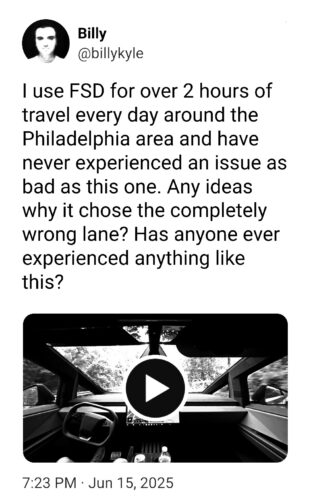A bit from Norm Macdonald’s 2017 Netflix show “Hitler’s Dog, Gossip & Trickery“:
Why the Swiss Buried a Report Revealing EV Should Replace 90% of ICE
Swiss officials buried a taxpayer-funded study showing how ordinary citizens could save money and help the climate—not because the science was wrong, but because they’d been politically manipulated into fear about telling the truth.
The Smoking Diesel: A Study That Should Have Helped Everyone
Swiss taxpayers funded important research in 2022. An allocation of 118,000 francs went to the Federal Office of Energy to answer a practical question: When does switching to an electric vehicle (EV) save both money and emissions?
The answer would help families make one of their biggest financial decisions—buying a car—with complete information. Multiple peer-reviewed studies internationally had already established that electric vehicles save money over their lifetime for most drivers while significantly reducing emissions.
The Swiss study clearly confirmed the facts:
More than 90% of current gas and diesel car owners would reduce both costs and emissions by switching to an electric vehicle immediately—unless they barely drive at all.
Experts from the Swiss Touring Club, Paul Scherrer Institute, and other respected organizations validated the research. Mobility expert Romain Sacchi called the work “excellent” with “clear conclusions.”
This is exactly the kind of practical consumer guidance government should provide.
Instead… Swiss officials ran and hid, trying to bury the facts that would save lives and reduce costs.
Smoke Signals of Information Warfare
Internal emails obtained by journalists through freedom of information laws reveal what happened:
Officials had been fed a very dangerous toxic narrative that providing consumer guidance (doing their job) would harm the very people it’s meant to help. It’s like gaslighting a surgeon into believing a life saving operation could kill the person who will die without it. Or like telling the police not to file a crime report needed to help the victim because the victim might not like to read it.
When the study neared completion in December 2024, the project manager suddenly showed distress that the topic had been made “potentially sensitive.” The communications chief went further, expressing fears of thoughts being judged “too academic” (e.g. lacking profit motivation).
The truth: Helping consumers understand the lifetime costs of major purchases is basic public service.
The manipulation: Bad actors had convinced officials that providing this service was somehow condescending to citizens.
The reality: Withholding cost-saving information from taxpayers who funded it is what actually disrespects citizens.
When Public Servants Are Terrorized to Stop Serving the Public
The emails reveal a cascading panic among officials who should have been proud to share helpful research:
What actually helps families: Clear information about transportation costs and environmental impact.
What officials feared: Being accused by “certain media” of political manipulation.
What really happened: Officials were manipulated by far right extremists into hiding helpful information.
When journalists requested the study under freedom of information laws, the scramble intensified. Officials explored various deceptions:
- Falsely claiming the completed study wasn’t finished
- Retroactively renaming the “final report” as “interim”
- Inventing new requirements to justify suppression
Only after exhausting these options did they inform the minister’s office. Leadership ultimately released the study to journalists but refused to publish it officially.
Real Harm to Swiss Democracy
Democratic governments exist to serve citizens with accurate information. When Switzerland’s transport sector produces the most greenhouse gases and remains furthest from climate targets, citizens deserve facts about their options.
Instead, a disinformation campaign achieved its goal:
- Thousands of Swiss families made car-buying decisions without complete information
- Switzerland missed its 2025 goal of 50% electric vehicle adoption (achieving only 30%)
- Public servants learned that doing their jobs invites punishment
The truth about who this serves: Withholding consumer information benefits industries that profit from uninformed decisions. Disabling experts and public servants serves fascism.
The false narrative: That sharing price comparisons somehow harms consumers.
The reality: Consumers are harmed when they lack information needed for major financial decisions.
Understanding the Manipulation Playbook
The following patterns seem to be consistent across topics and countries.
Healthcare
Reality: Vaccines prevent disease and save lives, as shown by centuries of evidence.
The disinformation: Bad actors falsely label this scientific consensus as “Big Pharma propaganda.”
The result: Public health officials become afraid to share life-saving information.
Education
Reality: Comprehensive education improves life outcomes for all students.
The disinformation: Bad actors call evidence-based apolitical curricula the opposite, such as “indoctrination.”
The result: Educators fear educating despite well established facts.
Economics
Reality: Progressive taxation and social programs reduce inequality and improve social mobility.
The disinformation: Bad actors dismiss economic research with practical proofs as “socialist theorizing.”
The result: Policymakers fear implementing policies that demonstrably help most citizens.
Swiss Democracy in Retreat
Switzerland built its prosperity on pragmatic, evidence-based decision-making. The country’s direct democracy depends on informed citizens making collective choices.
What democracy requires: Citizens with access to relevant information making decisions based on facts.
What actually happened: Officials hid facts because they’d absorbed narratives designed to prevent evidence-based policy.
The outcome: Swiss voters deciding on energy and climate policies without access to relevant research their taxes funded.
The bitter irony: Officials thought they were avoiding controversy. Instead, they created a democratic crisis where public servants fear serving the public.
Respect vs. Saccharin
Actually respecting citizens:
- Trusting them with factual information about major purchases
- Sharing research they funded about topics affecting their lives
- Believing people can understand cost comparisons and make informed choices
- Providing consumer guidance as a basic public service
Actually toxic to citizenship:
- Deciding they can’t handle straightforward information
- Hiding research because you assume they’ll misunderstand
- Withholding data that could save them money
- Treating taxpayers like children who need protection from facts
Protecting Democratic Information Sharing
Breaking this cycle requires recognizing how disinformation campaigns manipulate public servants into betraying public service:
Officials: Your duty is providing citizens with accurate information. When you hide helpful research, you’re not avoiding elitism—you’re practicing it.
Leaders: Defend civil servants who share evidence-based information. Make clear that taxpayer-funded research belongs to taxpayers.
Media: Report on information suppression as democratic failure. Don’t amplify narratives designed to prevent evidence-based policy.
Citizens: Demand access to research you funded. Support officials who prioritize transparency. Recognize when “controversy” is manufactured to hide helpful information.
Threats to Every Democracy
Switzerland’s buried electric vehicle study forces us to confront fundamental questions about information warfare in our midst.
What is government for?
If not to help citizens make informed decisions with accurate information, then what?
Who benefits from ignorance?
When public servants fear sharing consumer guidance, who profits from uninformed purchasing decisions?
What does democracy mean?
Can it function when officials hide information because they’ve internalized anti-democratic narratives?
What Swiss Officials Tried to Hide, to Appease Anti-Government Elites
- Electric vehicles have lower lifetime costs than gas cars for most drivers
- The climate benefit of switching is immediate and substantial
- These findings align with international research and basic physics
- This information could help families save thousands of francs
This is helpful consumer information. There’s nothing controversial about helping people save money while supporting energy independence.
The controversy was manufactured by those who benefit when consumers lack information. Swiss officials fell for it, choosing institutional comfort over public service.
The real scandal
Public servants so paralyzed by false narratives that they forget their job is serving the public with facts.
The Swiss case isn’t unique. Across democracies, public servants increasingly fear that doing their jobs—providing helpful information to citizens—will bring punishment.
This fear doesn’t arise naturally. It’s cultivated by campaigns designed to prevent evidence-based policy by making evidence itself seem dangerous.
The simple antidote
Recognize that democratic governments exist to help citizens make informed decisions. Any narrative suggesting that informed citizens are bad for democracy is itself anti-democratic.
When officials hide helpful information, they don’t avoid elitism—they embody it. When they share facts that help people save money and protect their children’s future, they practice democratic respect.
The choice is clear. The question is whether democratic institutions will remember their purpose and remove toxic right wing extremists like removing lead from gasoline, or upgrading from petroleum altogether.
An investigation by Republik and the WAV research collective first uncovered how false narratives about “elitism” led Swiss officials to hide helpful consumer information. Thanks to freedom of information laws, the study “Purchase Decision: When It Pays to Switch to an Electric Car” is now publicly available.
The case demonstrates why transparency laws and investigative journalism remain essential for democratic accountability—especially when public servants forget they serve the public.
Korean Tesla Lawsuit Uncovers Fraud in Telematics Data
It has been suspected for over a decade that Tesla is either intentionally cooking car data to avoid fault, or unable to engineer data integrity, or both. Now a lawsuit says it can prove that Tesla claims of driver fault in sudden acceleration crashes is actually a design flaw.
The family said that telematics data retrieved from the vehicle raises serious questions about the cause of the accident. According to the data, the accelerator pedal was allegedly pressed at 100 per cent displacement for six seconds, yet the vehicle’s speed increased by only 39km/h (24mph) – from 55.84 to 94.95km/h – a discrepancy they argue indicates the driver may have been pressing the brakes instead.
“Normally, we would rely on Event Data Recorder (EDR) data in such cases, but the fire destroyed it on impact,” Ha said. “However, this Tesla vehicle transmitted operational data via telematics to the company’s server, allowing us to review the vehicle’s speed and pedal input just before the crash.”
PA Tesla Cybertrucks: FSD Wrong-way and a Crash That Blows Red-light, Injures Three
This new crash report suggests the Cybertruck still accelerates through red lights and directly into other vehicles clearly in front of it. The pattern is unmistakable.

Just after 8 p.m. on May 31, police say a car traveling at a high rate of speed on East Carson Street in Pittsburgh’s South Side Flats ran a red light, hitting another car, flipping it on its side. Police sources confirm [it is] the Tesla Cybertruck that drilled the other vehicle, which was turning in the intersection before it.
In related news nearby, a man admits to subjecting the public to hours of danger every day from Tesla FSD. He has posted video of a Cybertruck breaking the law, while he sits complicit, driving on the wrong side of the road.
